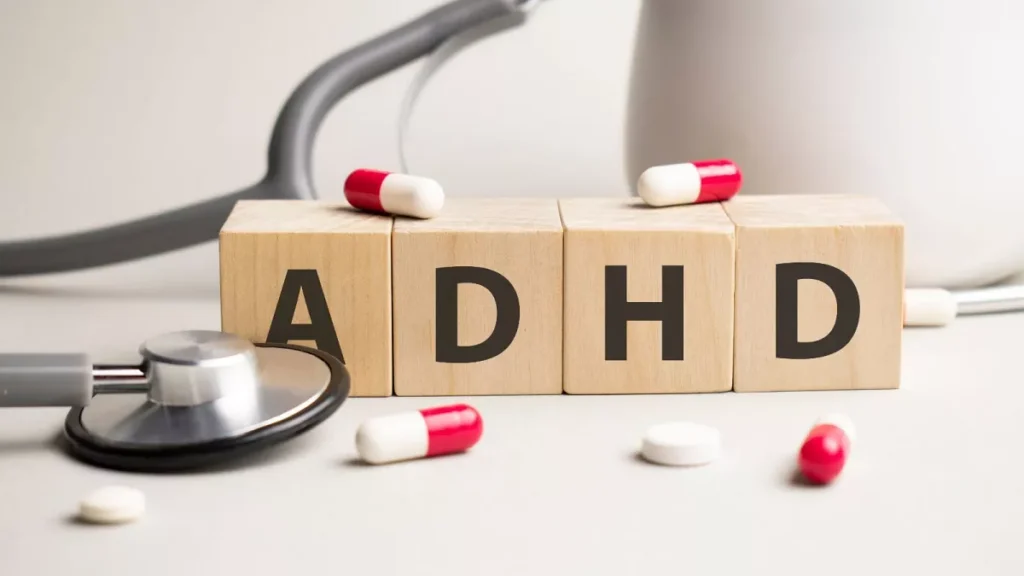Attention-Deficit/Hyperactivity Disorder (ADHD) is a common neurodevelopmental condition that affects both children and adults, characterized by symptoms such as inattention, hyperactivity, and impulsivity. Treatment for ADHD often includes medication, which can significantly impact individuals’ daily lives and overall well-being. However, like any treatment, ADHD medication has its advantages and drawbacks. This article explores both the pros and cons of ADHD medication to provide a comprehensive understanding of its effects.
The Pros of ADHD Medication
Improved Focus and Attention
One of the primary benefits of Symptom of ADHD medication is its ability to enhance concentration and attention. Stimulant medications, such as methylphenidate (Ritalin) and amphetamines (Adderall), are often prescribed to help individuals focus on tasks and improve their performance in academic, work, or social settings. By increasing dopamine and norepinephrine levels in the brain, these medications help to regulate attention and reduce distractibility.
Enhanced Executive Functioning
ADHD medications can improve executive functioning, which includes skills such as planning, organizing, and time management. Many individuals with ADHD struggle with these skills, leading to difficulties in completing tasks and meeting deadlines. Medication can help mitigate these challenges, allowing for better organization and more effective completion of daily responsibilities.
Reduction in Impulsive Behavior
Impulsivity is a hallmark symptom of ADHD, often leading to hasty decisions and risky behaviors. ADHD medications can help to control impulsive tendencies, enabling individuals to think before acting and make more deliberate choices. This reduction in impulsivity can enhance social interactions and reduce the likelihood of negative consequences in various areas of life.
Improved Emotional Regulation
Many individuals with ADHD experience difficulties with emotional regulation, leading to mood swings and heightened emotional responses. ADHD medications can help stabilize mood and improve emotional control, leading to a more balanced and consistent emotional state. This can be particularly beneficial for relationships and overall mental well-being.
Increased Quality of Life
By addressing core ADHD symptoms, medication can lead to a significant improvement in overall quality of life. Individuals may experience better academic performance, improved job performance, and enhanced social relationships. These improvements can contribute to a greater sense of satisfaction and well-being.
The Cons of ADHD Medication
Potential Side Effects
ADHD medications, particularly stimulants, can cause a range of side effects. Common side effects include insomnia, decreased appetite, weight loss, and stomachaches. Some individuals may also experience more severe side effects, such as increased heart rate or blood pressure, mood swings, or anxiety. These side effects can be distressing and may require adjustment of medication or dosage.
Risk of Dependency and Abuse
Stimulant medications have the potential for misuse and dependency, particularly among individuals with a history of substance abuse. The stimulating effects of these medications can lead to their misuse in an attempt to enhance cognitive performance or achieve a sense of euphoria. It is important for healthcare providers to monitor patients closely and ensure that medications are used as prescribed.
Variability in Effectiveness
ADHD medication does not work the same way for everyone. Some individuals may experience significant improvement in symptoms, while others may find minimal benefit. Additionally, finding the right medication and dosage can involve a process of trial and error, which can be frustrating and time-consuming for both patients and healthcare providers.
Short-Term Solution
While medication can be effective in managing ADHD symptoms, it is not a cure for the disorder. ADHD medications typically provide symptom relief while they are active in the body, but they do not address the underlying neurodevelopmental issues. As a result, individuals may need to rely on medication long-term, and complementary therapies or behavioral interventions may also be necessary.
Impact on Growth and Development
Some studies have suggested that long-term use of stimulant medications might impact growth and development in children. Concerns have been raised about potential effects on height and weight. Although evidence is not conclusive and varies among individuals, it is important for parents and healthcare providers to monitor growth and development regularly.
Balancing the Pros and Cons
When considering treatment of ADHD, it is crucial to weigh the benefits against the potential risks. For many individuals, the positive impact on focus, attention, and overall quality of life outweighs the potential drawbacks. However, it is important for medication to be part of a comprehensive treatment plan that includes behavioral therapy, lifestyle modifications, and support from family and educators.
Conclusion
ADHD medication can be a powerful tool in managing the symptoms of Attention-Deficit/Hyperactivity Disorder, offering significant benefits in terms of improved focus, attention, and emotional regulation. However, it also comes with potential side effects, risks of dependency, and variability in effectiveness. The decision to use medication should be made in consultation with a healthcare provider, considering individual needs and circumstances. By carefully evaluating the pros and cons and adopting a holistic approach to treatment, individuals with ADHD can work towards achieving their full potential and enhancing their overall well-being.



More Stories
How to Optimize Google My Business for Dental Clinics.
How to Choose the Right BASLP College in Patna?
1win Скачать На Андроид Бесплатное Приложение пиппардом Официального Сайт